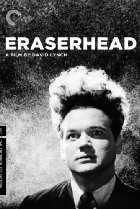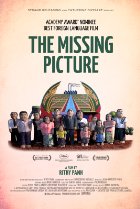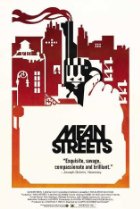
《Kidnapped by the Kremlin》
(Economist连续第三周以乌克兰局势开篇,随着双方进一步对立,杂志的笔锋也更多开始转向对普京的抨击,而对乌克兰西部的建设性意见依然停留在纸面)
Giving in to kidnappers is always dangerous: those who fail to take a stand to start with often face graver trials later on.
- Kremlin has a duty to protect Russians and Russian-speakers wherever they may be – the logic that Hitler used when he seized parts of Europe in the 1930s.
- Many powers, not least Britain, France and the United States, have sometimes broken the international law. But Mr Putin has emptied the law of significance, by warping reality to mean whatever he chooses.
《The end of beginning?》
(从文明的角度去解释了一番普京此次动武的缘由,不知道有朝一日中国在面对其周边地区出现类似状况时西方又会有怎样的解读)
There was only one thing missing: enemy
- Ukrainian forces remain calm: Russia was hoping to follow the scenario of the Georgian war in 2008, when it managed to provoke the Georgians to fire first, it flopped;
Putin is “in another world”
- Influenced by Ivan Ilyin – in this world of view, Ukraine’s revolutionary bid to escape to the West is a betrayal of Slavic brotherhood, and Russia should attempt to “save”
- more likely, Putin intends to use it as a destablising factor and leverage for splitting Ukraine further, stop the country from moving towards the West;
《Sixes and sevens》
(分析了下西方手中都有哪些能打的牌,牌桌上的每个人其实都在暗暗掂量自己手里的筹码)
Mr Obama has a freer hand
- relatively tiny amount of trade that America does with Russia – ten times lower than that between Europe and Russia;
- indifference of American public
The opposite view taken but the doves
- led by Germany, owe quite a lot to the importance of trade relationship – about a third of gas and oil Germany imported last year came from Russia;
- Britain, shown no great enthusiasm for sanctions;
Long-term cost
- future leaders of Ukraine will face even greater popular pressure to turn West;
- a NATO with a new sense of purpose
- and Russian stock market: its economy is now vulnerable to investor sentiment, a much quicker comeback than sanctions
《Let the sun shine》
For makers and users of solar power, the future looks bright.
- growing rapidly (albeit from a small base); and cost has fallen so quickly – photovoltaic installations are the future
- a biggest test will come in 2017, when the federal solar-investment tax credit drops from 30% to 10%;
Distributed solar power – generated from rooftop panels – undermines traditional centralized utility model
- in 2013, third-party-owned systems accounted for most solar installations in CA, AZ, CL and MA
- some utilities campaigned but were defeated;
- though makes utilities skittish, many have rushed to embrace it on the supply side; also, low installation and labour costs, clean power delivery at peak hours and a hedge against fuel-price volatility
《The burden of empire》
(本篇出现在Leaders的栏目中,并以一副批驳民族政策的口吻行文,观点谈不上新颖,但个别用词略煽动)
Xinjiang and Tibet (and Inner Mongolia) are still China’s colonies, their pacification under the Communist Party’s a continued imperial project. Were it not for the Dalai Lama’s restraining influence, violence in Tibet might be as bad as it is in Xinjiang.
《Not so sunny》
China’s first domestic bond default
- Shanghai Chaori Solar Energy Science and Technology Co
- panic will be limited, since not backed by local government;
- (Fitch) “long-term positive for the market”
《Submerging hopes》
Rich-world firms with above-average exposure to emerging economies have lagged America’s storkmarket by about 40% over the past three years;
What went wrong?
- some did not take risks seriously enough
- bad management – too many overpaid for acquisitions;
A decade of low interest rates and rampant Chinese demand allowed all developing countries to grow at turbocharged rates – even those that were badly run. Now the global environment is less forgiving.
To improve:
- should screen their portfolios for strategic relevance and financial returns
- borrowing in local markets, shift more production to the emerging world, consider acquisitions to boost market shares;
《Emerge, splurge, purge》
(是一篇论据多于论点的综述,有趣的是其中援引的例子以印度、拉美甚至俄罗斯居多,鲜有中国)
The companies suffering a slowdown profits come in three buckets:
- suffered a gentle weakening in demand and a currency drag: consumer firms;
- cyclical and capital-intensive industries face a sharper slowdown and those firms with mismatches (costs or debts in firm currencies but sales in depreciating ones);
- firms with idiosyncratic problems: China’s war on graft, Russia’s periodic crackdown on alcoholism;
The process accelerated dramatically by the mid-2000s, and subprime and euro crises made it irresistible;
A rule of thumb: half of the deal destroys value;
《One phone, many countries》
(非常有意思的一篇小文章,从iPhone 5s在拉丁美洲各国的销路来一窥每个国家所面临的的经济困境,语气轻松,不知本国读者又会作何感想了)
Brazil: the dearest in dollar terms, of the countries where Apple has stores (a 16G 5s costs $1,076)
- Brazil cost: the exorbitant cost of doing business in the country, largely due to tariffs and state and federal taxes on imports; also high labour costs and expensive commercial rents
Venezuela: huge gap between the official and unofficial exchange rates, goods that are imported at the black-market rate are out of reach to most;
Argentina: devices that are assembled in the Patagonian province benefit from a 60% reduction in excise taxes but Apple refused to play ball like Samsung and Blackberry;
Pacific Alliance – Chile, Columbia, Mexico and Peru – things are easier, but what’s lacking if purchasing power
Obtaining a smartphone contract in Peru similarly involves lots of queuing, lots of paperwork, and the waste of a few hours. The hassles do not end there. Customer service is poor and flaunting your new toy risks theft. That is true of other countries in the region, too. Diverse as it is, Latin America does have some things in common.


















